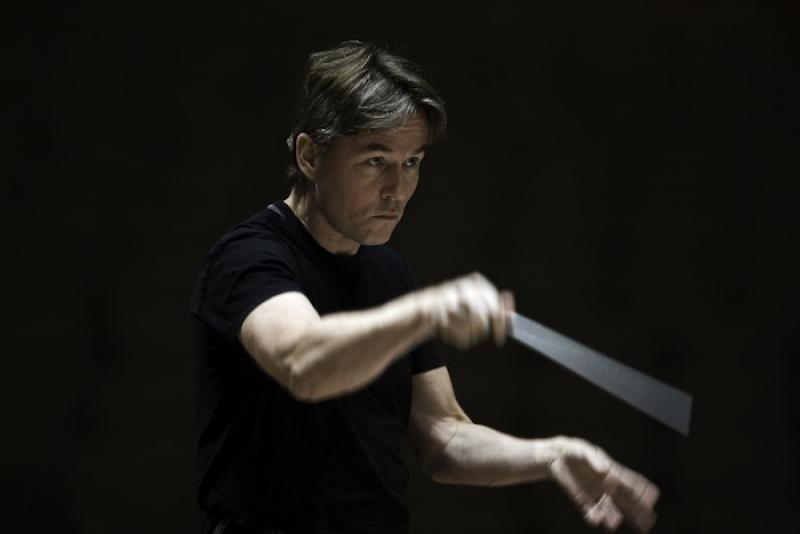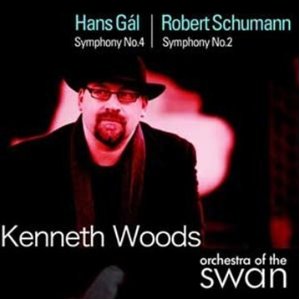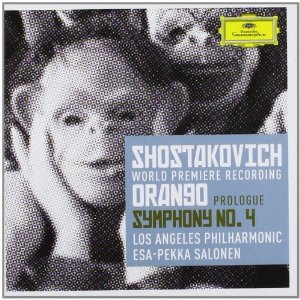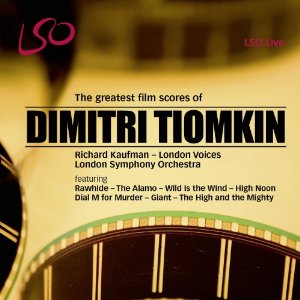Classical CDs Weekly: Gál, Schumann, Shostakovich, Tiomkin | reviews, news & interviews
Classical CDs Weekly: Gál, Schumann, Shostakovich, Tiomkin
Classical CDs Weekly: Gál, Schumann, Shostakovich, Tiomkin
A pair of Germanic symphonies, a fascinating operatic fragment and one of Hollywood's finest


Hans Gál’s four symphonies are being slowly rehabilitated, thanks in part to Avie’s ongoing series. An Austrian Jew who eventually settled in Edinburgh and achieved fame as an academic, Gál’s early renown came through composition. His final symphony was completed in 1974 but - intensely personal, elegiac, nostalgic music, and completely out of step with the times - it could have been written 80 years previously. Gál saw himself as part of the Austro-German tradition, and his last symphony achieves a Haydnesque clarity and concision. It’s sparely scored for a classical orchestra, and you’re reminded of Richard Strauss’s similarly anachronistic final works. Strauss, though, wrote better tunes. Gál’s symphony is delightful while it lasts but strangely unmemorable. The gorgeous, compact Scherzo is a highlight but it’s hard not to feel slightly shut out, as if Gál was writing for himself alone.
The Gál is intelligently coupled with Schumann’s Symphony No 2. There are no reservations at all about the playing of the Orchestra of the Swan under Kenneth Woods. Good chamber orchestras can make Schumann sound lighter, fresher, leaner – there’s plenty of definition and lightness here. Woods manages to make the first movement’s obsessive triple time rhythm sound like music instead of a stuck record, and the Scherzo has the requisite bounce. There’s plenty of stoic melancholy in the Adagio, but not enough to derail the symphony’s emotional trajectory. Excellent, in other words.

You wait years for an opera involving monkeys and then two turn up within months. The prologue from Shostakovich’s Orango is all that survives from a project dating from the early 1930s, the loopy plot concerning a human/ape hybrid who ends his dishonourable career in a Moscow circus. There was less of an appetite for state-sponsored satire as the decade progressed and the opera was quietly shelved, the surviving fragment eventually unearthed in 2004 and skilfully orchestrated by Gerard McBurney. Shostakovich’s hyperactive score is giddily entertaining, full of offbeat quavers and rushing strings. Esa-Pekka Salonen’s live Los Angeles performance is brilliant, with Ryan McKinny’s pompous MC a highlight. Orango’s entrance is backed by low brass, mirroring every yawn, grunt and scratch. All deeply peculiar and highly engaging, and a reminder of Shostakovich’s gifts as a composer of witty music.
It's hard to believe that the doomy Symphony No 4 was composed just a few years later. There’s a superb rhythmic kick to Salonen’s opening march, coupled with suitably pungent orchestral sonorities. The central movement’s death rattle is chilling, and he plots a steely, assured course through the long finale. The last three minutes are quietly devastating. Not a work you want to hear too often, but this is a spectacular, emotionally charged reading.

Born in the Ukraine, Dimitri Tiomkin pitched up in Hollywood in 1930, enjoying a composing career which lasted until the early 1970s. Incredibly versatile and a fast worker, he was under no illusions about his importance as a composer. “I am no Prokofiev," he said, "I am no Tchaikovsky. But what I write is good for what I write for.” Listening to this handsomely produced and glossily performed disc you’re struck by Tiomkin’s chameleon-like ability to invoke images of America – the Western scores recorded here are full of primary colours and open space. Tiomkin’s unlikeliest, most enduring success was the title song to High Noon, which became a smash for singer Frankie Laine. Andrew Playfoot sings here. He’s even better in the theme song to Rawhide, beefily backed by the men of London Voices. The results are uproarious – whooping horns and whipcracks nice and clear.
Two scores for Hitchcock films are combined; Dial M for Murder includes a prominent ringing telephone and Strangers on a Train captures the rapid cutting in the film’s opening sequence, though without the menace that Bernard Herrmann would later bring. Wild is the Wind’s theme song is delivered in by Whitney Claire Kaufman in a manner that almost eclipses Johnny Mathis’s original. Land of the Pharoahs has a wonderful Technicolor moment when the choir enter two minutes in – schlocky, hokey stuff, but highly effective. It all works. The LSO sound fully engaged and Richard Kaufman steers them confidently through the scores’ trickier corners. Great fun.
Watch the opening sequence to High Noon, sung by Tex Ritter
Explore topics
Share this article
The future of Arts Journalism
You can stop theartsdesk.com closing!
We urgently need financing to survive. Our fundraising drive has thus far raised £49,000 but we need to reach £100,000 or we will be forced to close. Please contribute here: https://gofund.me/c3f6033d
And if you can forward this information to anyone who might assist, we’d be grateful.

Subscribe to theartsdesk.com
Thank you for continuing to read our work on theartsdesk.com. For unlimited access to every article in its entirety, including our archive of more than 15,000 pieces, we're asking for £5 per month or £40 per year. We feel it's a very good deal, and hope you do too.
To take a subscription now simply click here.
And if you're looking for that extra gift for a friend or family member, why not treat them to a theartsdesk.com gift subscription?
more Classical music
 From Historical to Hip-Hop, Classically Black Music Festival, Kings Place review - a cluster of impressive stars for the future
From quasi-Mozartian elegance to the gritty humour of a kitchen inspection
From Historical to Hip-Hop, Classically Black Music Festival, Kings Place review - a cluster of impressive stars for the future
From quasi-Mozartian elegance to the gritty humour of a kitchen inspection
 Shibe, LSO, Adès, Barbican review - gaudy and glorious new music alongside serene Sibelius
Adès’s passion makes persuasive case for the music he loves, both new and old
Shibe, LSO, Adès, Barbican review - gaudy and glorious new music alongside serene Sibelius
Adès’s passion makes persuasive case for the music he loves, both new and old
 Anja Mittermüller, Richard Fu, Wigmore Hall review - a glorious hall debut
The Austrian mezzo shines - at the age of 22
Anja Mittermüller, Richard Fu, Wigmore Hall review - a glorious hall debut
The Austrian mezzo shines - at the age of 22
 First Person: clarinettist Oliver Pashley on the new horizons of The Hermes Experiment's latest album
Compositions by members of this unusual quartet feature for the first time
First Person: clarinettist Oliver Pashley on the new horizons of The Hermes Experiment's latest album
Compositions by members of this unusual quartet feature for the first time
 Gesualdo Passione, Les Arts Florissants, Amala Dior Company, Barbican review - inspired collaboration excavates the music's humanity
At times it was like watching an anarchic religious procession
Gesualdo Passione, Les Arts Florissants, Amala Dior Company, Barbican review - inspired collaboration excavates the music's humanity
At times it was like watching an anarchic religious procession
 Classical CDs: Camels, concrete and cabaret
An influential American composer's 90th birthday box, plus British piano concertos and a father-and-son duo
Classical CDs: Camels, concrete and cabaret
An influential American composer's 90th birthday box, plus British piano concertos and a father-and-son duo
 Cockerham, Manchester Camerata, Sheen, Martin Harris Centre, Manchester review - re-enacting the dawn of modernism
Two UK premieres added to three miniatures from a seminal event of January 1914
Cockerham, Manchester Camerata, Sheen, Martin Harris Centre, Manchester review - re-enacting the dawn of modernism
Two UK premieres added to three miniatures from a seminal event of January 1914
 Kempf, Brno Philharmonic, Davies, Bridgewater Hall, Manchester review - European tradition meets American jazz
Bouncing Czechs enjoy their Gershwin and Brubeck alongside Janáček and Dvořák
Kempf, Brno Philharmonic, Davies, Bridgewater Hall, Manchester review - European tradition meets American jazz
Bouncing Czechs enjoy their Gershwin and Brubeck alongside Janáček and Dvořák
 Solomon, OAE, Butt, QEH review - daft Biblical whitewashing with great choruses
Even a top soprano and mezzo can’t make this Handel paean wholly convincing
Solomon, OAE, Butt, QEH review - daft Biblical whitewashing with great choruses
Even a top soprano and mezzo can’t make this Handel paean wholly convincing
 Two-Piano Gala, Kings Place review - shining constellations
London Piano Festival curators and illustrious friends entertain and enlighten
Two-Piano Gala, Kings Place review - shining constellations
London Piano Festival curators and illustrious friends entertain and enlighten
 Echo Vocal Ensemble, Latto, Union Chapel review - eclectic choral programme garlanded with dance
Beautiful singing at the heart of an imaginative and stylistically varied concert
Echo Vocal Ensemble, Latto, Union Chapel review - eclectic choral programme garlanded with dance
Beautiful singing at the heart of an imaginative and stylistically varied concert
 Scott, Irish Baroque Orchestra, Whelan, RIAM, Dublin review - towards a Mozart masterpiece
Characteristic joy and enlightenment from this team, but a valveless horn brings problems
Scott, Irish Baroque Orchestra, Whelan, RIAM, Dublin review - towards a Mozart masterpiece
Characteristic joy and enlightenment from this team, but a valveless horn brings problems

Add comment